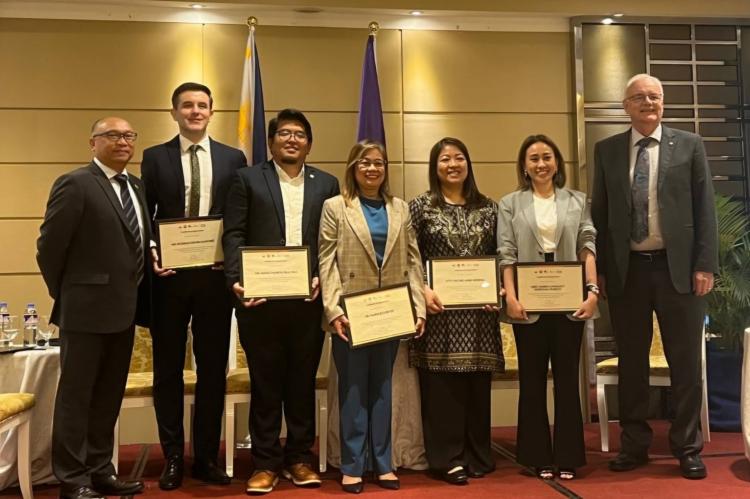Advocates strategize climate financing at PH Green Climate Fund conference
MANILA City — Climate advocates from civil society and development partners from the private and public sectors gathered at the 1st National Stakeholders Conference 2024 on the Green Climate Fund (GCF) held on June 27 to discuss and develop strategies for addressing the Philippines’ urgent need for sustainable and responsive action through climate financing.
The Department of Finance (DOF), as the national designated authority to the GCF, hosted the event, drawing on the power of collective engagement to generate insights on climate funding access, funding accountability, process streamlining, capacity enhancement for local stakeholders, and intergovernmental coordination.
Panel discussions and open dialogues revolved around the country’s strategic utilization of funding from the GCF — established by the United Nations Framework Convention on Climate Change to assist developing countries—along with the Philippines’ frontline and national initiatives to adapt to and mitigate the climate crisis.
The first GCF project approved for implementation in the Philippines, Multi-hazard Impact-Based Forecasting and Early Warning System, aims to funnel climate-resilient development planning and investment into building best practices for multi-hazard early warning systems and instituting forecast-based actions on the ground as part of disaster risk-reduction and management.
“As the world’s largest instrument for climate funding, the Green Climate Fund is one of the most important resources at our disposal,” said Commissioner Rachel Anne Herrera of the Climate Change Commission (CCC), one of the agencies tasked with evaluating proposals under the GCF. “The extent of our vulnerability—the frequency of disasters, and the number of communities exposed geographically and economically—means we must be strategic and judicious in accessing the GCF, to finance large-scale climate change-related projects and activities.”
Herrera called for participants and observers to continue exercising their increased engagement with the pilot GCF project, saying that “it will be essential for us to learn from them and use them as a means to review and assess current processes from project preparation to implementation.”
At the stakeholder conference, the CCC took part in a panel discussion on future directions for climate finance in the Philippines, alongside representatives of the DOF, GCF, Institute for Climate and Sustainable Cities, and Asian Development Bank.
Herrera underscored the Philippines’ geographic and economic vulnerabilities to climate change and the consequent need for an urgent whole-of-society approach. The CCC co-chairs the Interagency Task Force on Sustainable Finance and shares responsibility with the DOF for coordinating initiatives, analyzing project proposals and policies, and mobilizing climate funding for responsive solutions.
“Our self-imposed goals of reducing our emissions and creating a sustainable economy are steep, needing massive financing amounting to more than double the budget our government can allocate,” Herrera pointed out. “For our carbon emissions reduction targets alone, the required investment is approximately $72 billion (₱4.1 trillion), with predominant financing requirements identified in the energy sector (about ₱2.1 trillion) and the transport sector (around ₱1.9 trillion).”
Mr. Jerome Ilagan, Chief of CCC’s Policy Research and Development Division, presented the salient features of the National Adaptation Plan (NAP) of the Philippines 2023-2050, highlighting its focus areas and key principles, strategic framework, climate analytics, and key findings, including the identified high-risk provinces.
The CCC is also mandated to review the relevance and appropriateness of the design of local projects applying for the People’s Survival Fund, established by the government to support adaptation measures that mitigate the effects of climate change. This role equips the agency with a comprehensive understanding of the processes behind expansive climate actions—knowledge that it leverages in its call for developing policies that accelerate sustainable financing.
The CCC is the lead policy-making body of the government tasked to coordinate, monitor, and evaluate government programs and ensure mainstreaming of climate change in national, local, and sectoral development plans towards a climate-resilient and climate-smart Philippines.

